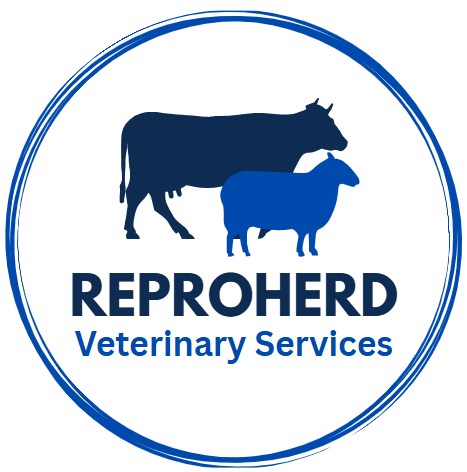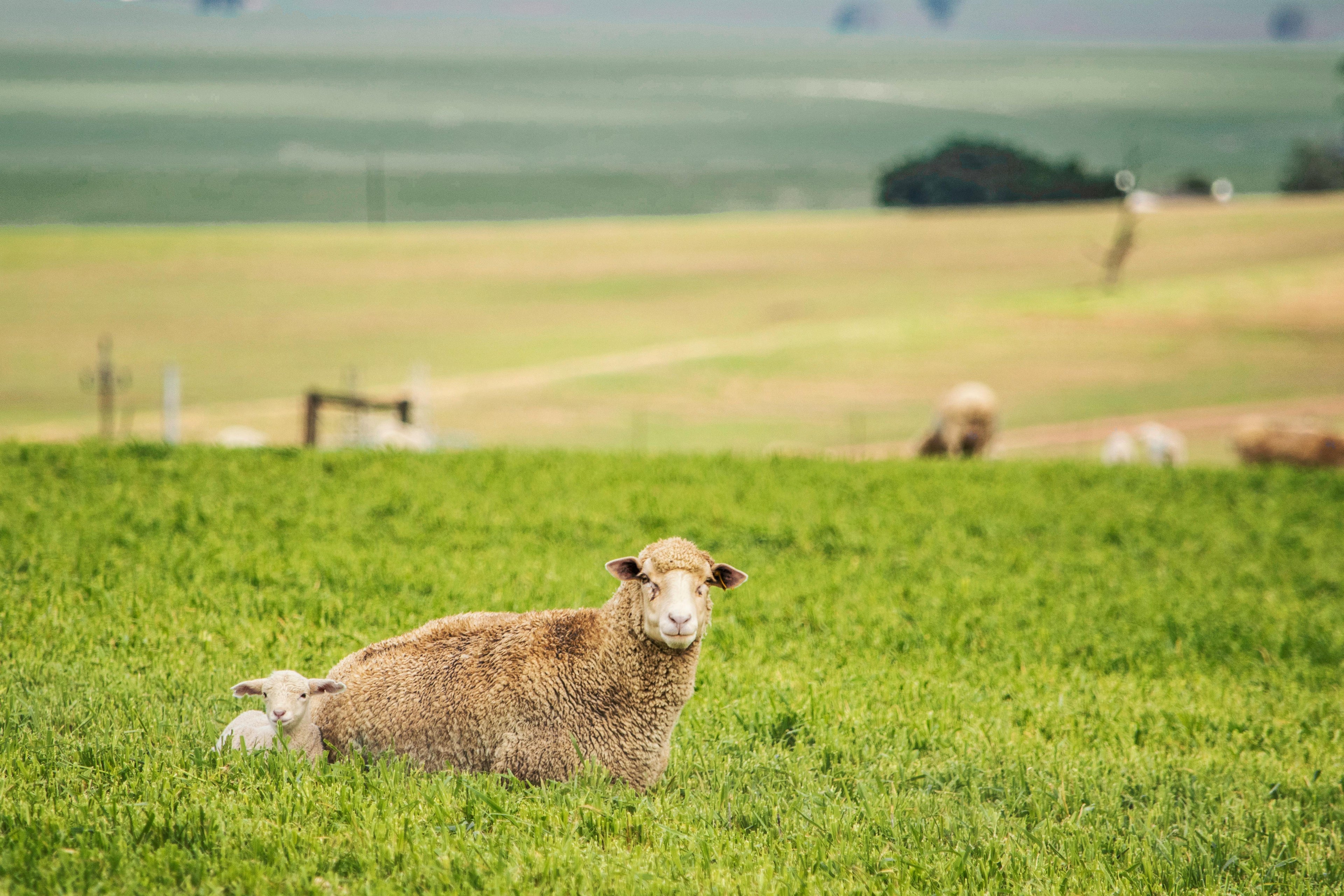Frequently Asked Questions
A herd health veterinarian plays a critical role in maintaining and improving the health, productivity, and profitability of livestock operations. Their importance goes well beyond treating sick animals — they work proactively to manage the overall well-being of the entire herd. Here's why they are so essential:
1. Preventive Health Management
- Disease prevention: Develops vaccination programs, parasite control, and biosecurity measures to prevent outbreaks.
- Early detection: Implements regular health monitoring to catch diseases before they spread or become severe.
2. Productivity and Profitability
- Healthier animals grow faster, produce more milk or meat, and reproduce more reliably.
- Veterinarians help identify and eliminate inefficiencies due to subclinical diseases or poor nutrition.
3. Reproductive Management
- Oversees breeding programs, pregnancy checks, and fertility evaluations to optimize reproductive performance.
4. Animal Welfare
- Ensures ethical treatment and reduces animal suffering through proper handling, pain management, and humane interventions.
5. Food Safety and Public Health
- Prevents zoonotic diseases (those that can transfer from animals to humans) and monitors residues from antibiotics or other drugs, ensuring safe food production.
6. Record Keeping and Data Analysis
- Helps maintain accurate health records to track performance trends, disease outbreaks, and treatment effectiveness.
- Uses data to make evidence-based decisions for herd improvements.
7. Regulatory Compliance
- Assists producers in meeting local, national, and international regulations for livestock health, welfare, and traceability.
8. Education and Training
- Trains farm staff in best practices for animal handling, observation, and care.
- Provides guidance on topics like nutrition, housing, and biosecurity.
Vaccinating livestock is critically important for several reasons, spanning animal health, public health, and economic stability:
1. Prevents Disease Outbreaks
• Vaccination helps protect animals from infectious diseases like foot-and-mouth disease, brucellosis, and rabies.
• Preventing these diseases reduces animal suffering and mortality and helps maintain herd health.
2. Promotes Food Security
• Healthy animals produce more meat, milk, and eggs.
• Vaccination minimizes production losses caused by illness, ensuring a stable food supply.
3. Reduces Economic Losses
• Disease outbreaks can lead to costly culling, trade restrictions, and treatment expenses.
• Farmers and national economies benefit when livestock are healthy and productive.
4. Supports Public Health
• Many livestock diseases (zoonoses) can be transmitted to humans—e.g., brucellosis, rabies, avian influenza.
• Vaccination helps break the transmission chain, protecting people from potentially deadly infections.
5. Limits Antibiotic Use
• Vaccinated animals are less likely to get sick and require antibiotics.
• This helps combat antibiotic resistance, a major global health concern.
6. Improves Animal Welfare
• Preventing disease through vaccination reduces animal suffering.
• It supports ethical and humane livestock management.
In short, vaccinating livestock is a proactive, cost-effective strategy that benefits animals, humans, and economies alike.
Testing bulls and rams for breeding soundness is essential to ensure reproductive success and overall herd productivity. Here's why it's so important:
1. Maximizes Fertility Rates
- A breeding soundness exam (BSE) assesses whether a male is physically capable of breeding and producing viable sperm.
- Using a sub-fertile or infertile male can lead to low conception rates, resulting in missed breeding seasons and reduced offspring numbers.
2. Improves Herd Productivity and Profitability
- One infertile or underperforming bull or ram can compromise the reproductive efficiency of many females.
- Early detection prevents economic losses by allowing timely replacement before the breeding season begins.
3. Detects Physical or Health Issues
- The exam checks for structural soundness (e.g., legs, feet, eyes), body condition, and any injuries or infections (like testicular or penile abnormalities).
- Identifying and treating problems early can extend the animal’s productive life.
4. Evaluates Semen Quality
- A semen analysis checks sperm concentration, motility, and morphology.
- Poor semen quality can result in failed pregnancies even if mating occurs.
5. Prevents the Spread of Reproductive Diseases
- BSEs can include testing for venereal diseases like Trichomoniasis or Campylobacteriosis.
- Identifying infected animals prevents transmission to females and the rest of the herd.
6. Supports Efficient Breeding Management
- Knowing each male's reproductive status allows better planning for natural mating or artificial insemination.
- This ensures optimal bull-to-cow or ram-to-ewe ratios for effective coverage.
In summary: A breeding soundness exam is a low-cost, high-value management tool that helps ensure that every breeding season is as successful and productive as possible.
Using the correct medication to treat livestock is critically important for animal health, food safety, public health, and economic efficiency. Here's a breakdown of why it matters:
1. Ensures Effective Treatment
• Using the correct drug at the right dose, route, and duration targets the specific disease-causing organism.
• This leads to faster recovery and reduces the spread of illness within the herd or flock.
2. Prevents Drug Resistance
• Misuse or overuse of medications—especially antibiotics—can lead to antimicrobial resistance (AMR).
• Resistant bacteria can spread to humans and animals, making infections harder (or impossible) to treat.
3. Protects Food Safety
• Incorrect or illegal drugs, or improper withdrawal times, can leave harmful residues in meat, milk, or eggs.
• This poses health risks to consumers and can lead to rejected products in local and international markets.
4. Reduces Animal Suffering
• The wrong treatment can delay recovery or make the condition worse.
• Correct medication improves animal welfare by effectively relieving pain and treating disease.
5. Supports Regulatory Compliance
• Many countries have strict regulations on livestock medications, including veterinary prescription requirements and residue monitoring.
• Using the right drug properly helps farmers stay compliant and avoid fines or legal issues.
6. Minimizes Economic Losses
• Ineffective treatment can mean repeat infections, more vet visits, and even animal death.
• Using the correct medication from the start avoids unnecessary costs and production losses.
In summary: Proper use of medication in livestock is essential for effective treatment, responsible stewardship of antibiotics, and the safety and sustainability of the food supply. Always follow veterinary guidance and label instructions.

